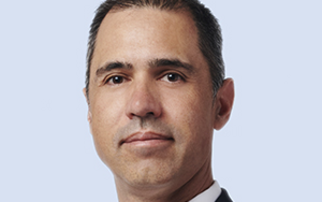Following last year's impressive stockmarket performance, UK investors entered 2004 with a rather important question: what happens next?
This year looks likely to be pretty exciting for the UK stockmarket. Overall, I am expecting few real disappointments from the reporting season, improving dividends, investors to push their interests aggressively at AGMs and corporate activity to pick up.
As the results’ season gets into full swing, investors will be kept occupied for the next month or so digesting a flood of numbers and outlook statements. Given the new market practice of companies releasing trading updates prior to the closed season, too many surprises on the historic numbers are unlikely, although the positive profits warning from Aviva in early February shows that consensus numbers may still be awry.
The main area in which companies still have the capability to shock relates to dividends, but I am optimistic regarding dividend prospects. Indeed, as a new consensus develops that we are in an era of only single-digit annual returns from equities, investors have begun to appreciate that dividend income will be an increasingly important component of their total return.
This message is making its way back to the corporate sector so we have seen companies, such as Carphone Warehouse, BSkyB and ARM Holdings, start to make distributions and other companies, such as Vodafone and Sage, step up their dividend growth rates.
A key driver of share prices will inevitably be the tone of outlook statements and, with the exception of large ‘dollar’ stocks, I am hopeful that most companies will be upbeat. I shall be looking, in particular, for confirmation that the commercial sector is seeing a recovery after its long recession, as widespread evidence now indicates that corporate confidence is improving.
For instance, British Airways is now seeing growth in premium-traffic volumes, the number of job vacancies is increasing on the Michael Page website and indications from the radio industry are that advertising demand is picking up. As yet, the stockmarket will probably require more evidence that conditions are improving before pushing the share prices of travel, recruitment and advertising stocks ahead.
However, I expect further positive news will drive these sectors higher, not least because the length of the lean period has been sufficient for most companies to bring their costs well under control. In addition, operational gearing should ensure that any upturn feeds through to profits growth quickly and markedly. If so, investors will inevitably chase prices in these sectors higher, not least because other areas in the stockmarket will not be seeing such improving prospects. For example, consumer sectors will likely be suffering from rising interest rates and defensive stocks do not look cheap to me. Of note, the technology and hotel sectors could benefit from increased corporate spending.
Beyond the results’ season, I expect two issues to come to the fore. First, the AGM season is likely to be fiery. Having rejected the remuneration report from GlaxoSmithKline last year, investors appear far more prepared to stand firm on important matters. Expect plenty of fireworks to come after annual reports have been dispatched.
Secondly, I am expecting corporate activity to pick up. As companies become more confident about their own prospects, they are more likely to consider acquiring weaker rivals. The string of very large bids outside the UK, including the merger of JP Morgan and BankOne, the bid for Walt Disney and Sanofi’s bid for Aventis in France, will have whetted the appetite of the more-buccaneering chief executives in the UK.
However, I would expect many companies to want to have a look at 2003 annual reports before proceeding, not least because the state of so many corporate pension funds could have changed dramatically last year.IFAonline












